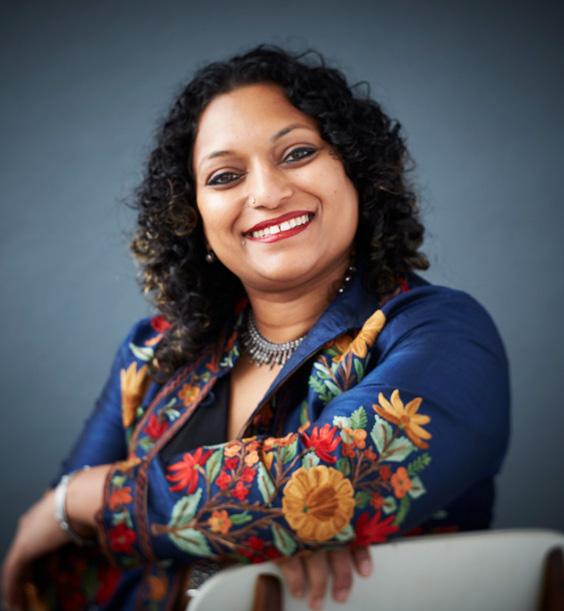
3 minute read
A protection we cannot a ord to lose
from 2018-05 Melbourne
by Indian Link
Australians value freedom of expression but laws against hate speech are still
A flourishing society also requires more than just freedom of speech; it requires security, stability, a just legal system and a vibrant economy.
BY MATT KEAN
Australia is a country of great diversity. You can see it in the faces of the people that you work with. You can see it in the restaurants that line the main streets of our towns. And you can see it in the variety of religious and cultural events celebrated around the country: Chinese New Year, Diwali, Hanukkah, Ramadan and Christmas to name a few.

Gonsalves’ mind. “Of course, it’s a huge risk; anti-Modi views are not taken lightly and many journalists are being silenced for voicing their opinions. But we have no connection with party politics, we are part of a growing number of people who are becoming concerned about the disturbing trends in India.” be a deterrent to crime. Education is the only solution,” she said.
However, the treatment of the Aboriginal peoples in this country stands as a chilling reminder that tolerance has not always been embraced. The Cronulla riots similarly reminds us how quickly what we have achieved can be put at risk.
That is why freedom of speech is not absolute. In this country, it is criminal to disclose secrets which risk the lives of Australian soldiers. It is likewise a crime for a corporate executive to disclose market sensitive information to his mates. The law protects us from slander and protects privileged comments made to our lawyers.
As a society, we recognise that these restrictions do not hurt our democracy or way of life. Indeed, we understand that they are necessary to maintain it. And laws against hate speech are no less necessary, because racism and bigotry tear at the heart of our social fabric.
Gonsalves is a well-known literary figure is Sydney, having arrived on the scene with her first book of short stories The Permanent Resident, that won the Multicultural NSW Award at the NSW Premier’s Literary Awards.

The proposed amendments to Racial Discrimination Act were put forward on the basis that the current wording of Section 18C inappropriately constrains our freedom of speech.
Perhaps it’s this growing concern and furore that has resulted in an ordinance passed by India’s cabinet last week, according to which offenders who rape girls under the age of 12 may now be subject to death penalty. But Gonsalves remains unconvinced of the efficacy of the “Death penalty makes for a great headline, but it will lead to more murders. Until now, women and children were being raped, now they’ll be raped and murdered. Who’s going to let the child live to be able to speak up? The death penalty was a kneejerk populist reaction, and it will not
That section makes it unlawful to do an act in public which “is reasonably likely… to offend, insult, humiliate or intimidate another person or a group of people” if “the act is done because of the race, colour or national or ethnic origin of the other person

There is no doubt that freedom of speech is important but it is important because of the role it plays in our democracy. Freedom of speech ensures that when you or I go to the ballot box we can make an informed decision about who to vote for.
This isn’t the first time the writer has taken up activisim. Back in 2015, she had gathered along with members of the creative fraternity in India under the auspices of the Kochi-Muziris Biennale 2014 umbrella to also express their solidarity with persecuted Tamil novelist Perumal Murugan.
Racism and bigotry leave people feeling exiled in their own home. They do not improve the quality of public debate nor do they assist the wise completion of a ballot paper. They are insidious because they attack a person because of their identity; their heritage. They imply that a person is inferior because of who they are. They are hurtful, divisive and can lead to individuals and entire communities feeling unwanted, unvalued and second-class.
Gonsalves may be right about education being the only solution, but it’s one that will take years to implement. For now, it’s clear that the Indian diaspora has become more vocal about Indian issues and they are demanding that authorities sit up and take notice.
As a society, we recognise that restrictions on free speech do not hurt our democracy or way of life. Indeed, we understand they are necessary to maintain it. And laws against hate speech are no less necessary, because racism and bigotry tear at the heart of our social fabric
Freedom of speech is necessary so that as a community, we can debate political ideas and so that individuals can have a say on decisions that affect them.
Section 18C ensures that everyone has a role to play in that debate.

Comments today can also revive memories of past wrongs. Unfortunately, few ethnic groups have been spared the pain of racially justified persecution. Examples such as slavery in the United States and the Holocaust are well known. In recent times, the a vibrant, rich and diverse society. A society not focused on the differences between us, but founded on the strengths our differences afford us. Section 18C stands, not as a threat to freedom of speech, but as a protector of the purposes which that freedom serves, and as a guard to an achievement exceptional in this time and rare in times before.
Matt Kean is the Member for Hornsby and Parliamentary Secretary for Communities.






